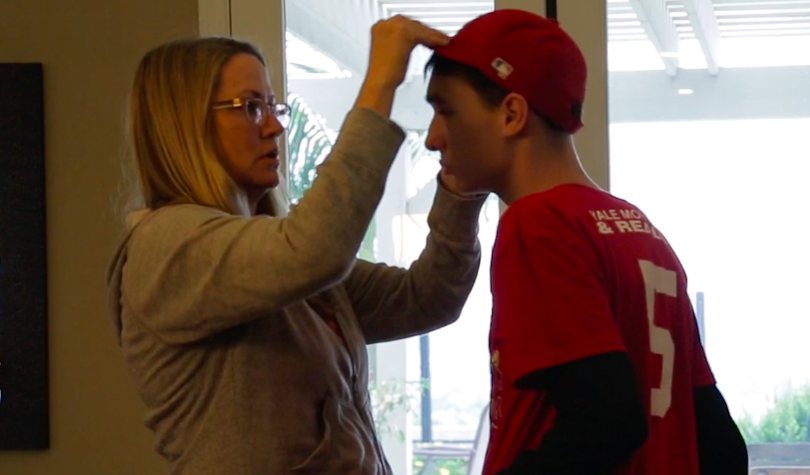My film, Aging Out, recently premiered in my town of Carlsbad, California. This four-year project explores the challenges faced by the families and caregivers of autistic children as they reach adulthood and lose supports, services, and community. I told the story of how, as a 20 year-old communication student as UCSD, I saw a film called Roger and Me, produced and directed by Michael Moore. The film is about what happens to his hometown of Detroit in the 1980s as GM closes factories to increase profits. I sat riveted as everything I knew about documentary film was turned upside down. It was personal. It was opinionated. It was dramatic. By the end of the film, I felt compelled to become a documentary filmmaker myself.
It only took me thirty years. It took having a child whose story I had to tell. It took all of the fear, anger, depression, anxiety, hope, and joy that comes with being an autism parent. My son and many other autistic adults will not tell their own stories; will never be able to truly advocate for themselves. Some can and I celebrate that! My calling is to speak for those who can’t. People often ask me what I hope to accomplish with this film. I want the general population to know that a large percentage of autistic adults won’t go to college, won’t major in engineering, won’t get married, won’t have careers. They will have their own successes, like the brave young people in my film. But for them to do that, resources need to be allocated. It’s that simple. If you don’t know the extensive (and expensive) needs our population has, why would you vote for politicians who would fund programs for them? Why would you patronize business with inclusive hiring and training practices? Why would you be extra patient if our sons or daughters are making your coffee or washing your car?
Collins-Porter and family.
Two hundred and fifty people filled the auditorium where I showed my film. About 95% of those were autism families. Most of them had directly supported the production of the film, either financially or by participating. The love and support in the room were palpable. Now it’s time to take the message further. Parents and caregivers of disabled loved ones can stream my film for free. I will speak to your group for free. Email me at collinsporter@gmail.com to get a link and password. Then, let me know about groups of educators, legislators, service providers, or community organizations who should see the film. Let’s spread this message together.
Melissa Collins-Porter is a filmmaker who lives in Southern California.
More on the film:
Film website
San Diego Union Tribune article


